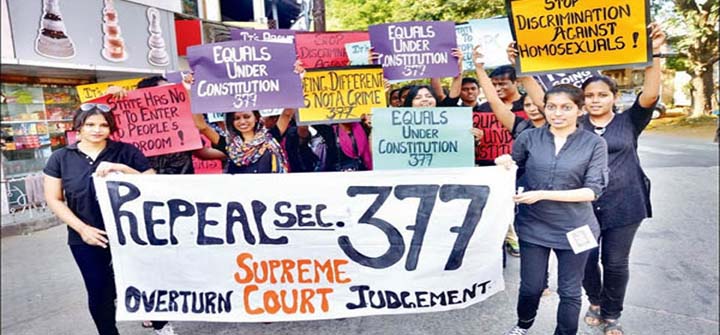Next Story
28 Jun 2016 8:27 PM IST
With Supreme Court in February this year providing a glimmer of hope for the LGBT community by promising a re-look into de-criminalisation of homosexual acts on a strong curative plea by Naz Foundation, three high-profile celebrities working in the sphere have approached the Supreme Court seeking quashing of section 377 of the IPC. Their plea is likely to be heard tomorrow.The celebrities...

